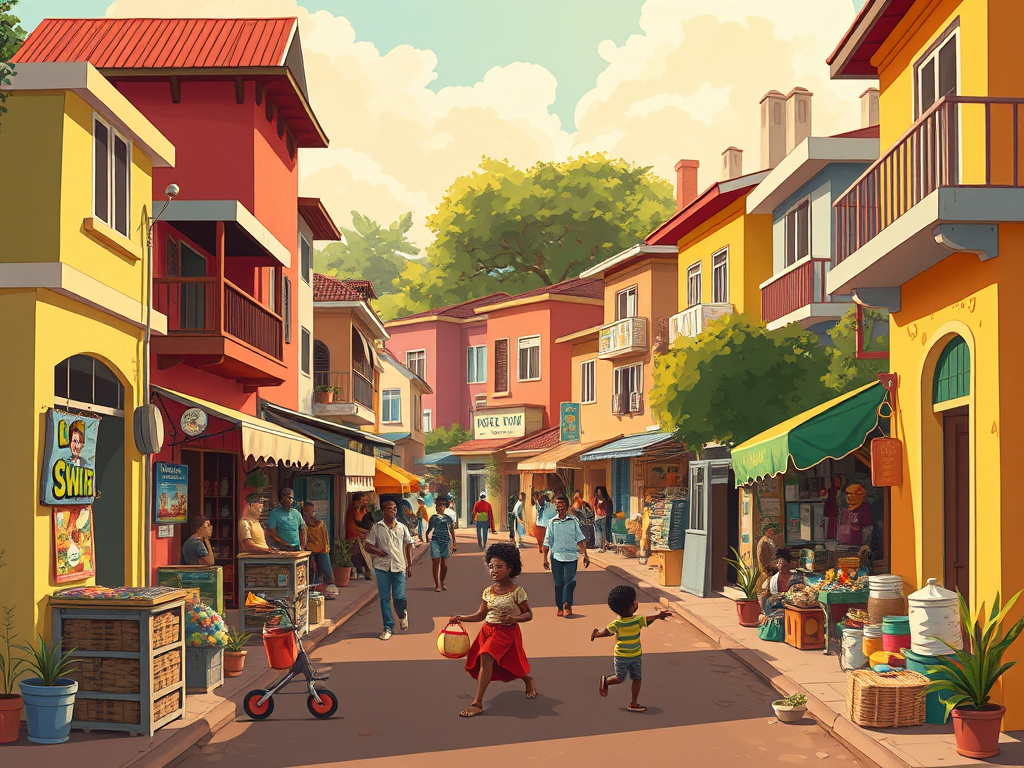Ada stood in front of the house she had called home for over a decade. It was a place that had shaped her childhood in ways she couldn’t put into words—the good, the bad, and everything in between. Today, though, it looked different, almost unrecognizable. The green building she remembered was now painted a modern shade of white, and the street that once felt so alive was… quiet. No kids playing. No familiar faces. No vendors shouting. Just silence.
As she stood there, nostalgia washed over her. She could see her younger self, always running down the stairs—for errands, for play, for reasons she couldn’t even remember now. She’d dash to the Mallam’s shop just outside the building to grab things for her parents or to her Aunt Ngozi’s salon just a stone’s throw from the house. The supermarket nearby sold everything they ever needed, and if it wasn’t there, someone in the neighborhood surely had it.
The street was alive back then. Morning assemblies from nearby schools filled the air, and at closing time, students loitered on the street, buying snacks from Iya Seun or catching up with friends. The bakery down the road, famous for its sweet, hot bread, sent out an aroma that drew everyone in.
Weekends were especially lively: boys and men playing football on the street, the smell of neighbors’ cooking filling the air, the hum of generators blending with the sound of TVs tuned to familiar TV shows. She could almost hear the collective cheer when NEPA (now PHCN) restored power or the Super Eagles scored a goal during a live match. It wasn’t just a street; it was a community where doors were always open, and neighbors felt like family.
But now? Everything had changed.
The bustling, vibrant street she once knew was gone. The familiar faces were no longer there, and the sense of community she’d experienced growing up seemed non existent.
Ada was different too.
She wasn’t the carefree girl who had once lived at Number 8, Bakare Street. She was a mum of three, living thousands of miles away in a foreign land where neighbors barely acknowledged each other. Life abroad was quieter and more structured, but also lonelier. The communal warmth she’d taken for granted now felt like a treasure she couldn’t reclaim.
She had always imagined she’d grow up and move on, but she hadn’t anticipated how much she’d miss the life she once had. The simplicity, the connection, the sense of belonging.
A few weeks back, she and her family had tried baking bread at home. As they worked, memories of the bakery down the street flooded her mind. The aroma of their freshly baked bread had brought back a piece of her childhood, even if only for a moment. It wasn’t the same, but it was enough to make her smile.
As she climbed back into her car, Ada took one last look at the house and the street that had given her so much. Life had moved on, as it always does, but the lessons and love she found there stayed with her.
Her childhood had been a gift, filled with memories and experiences that shaped her into the woman she was today. And though life looked different now, she knew those moments would always be a part of her, a reminder of where she’d come from and how far she’d grown.
Driving away, she whispered a silent thank you to Number 8, Bakare Street. It had been more than just a street and a house; it had been a haven, her home. And though her life now looked nothing like it did back then, she carried those memories as a reminder of who she was and how far she’d come.

Leave a Reply